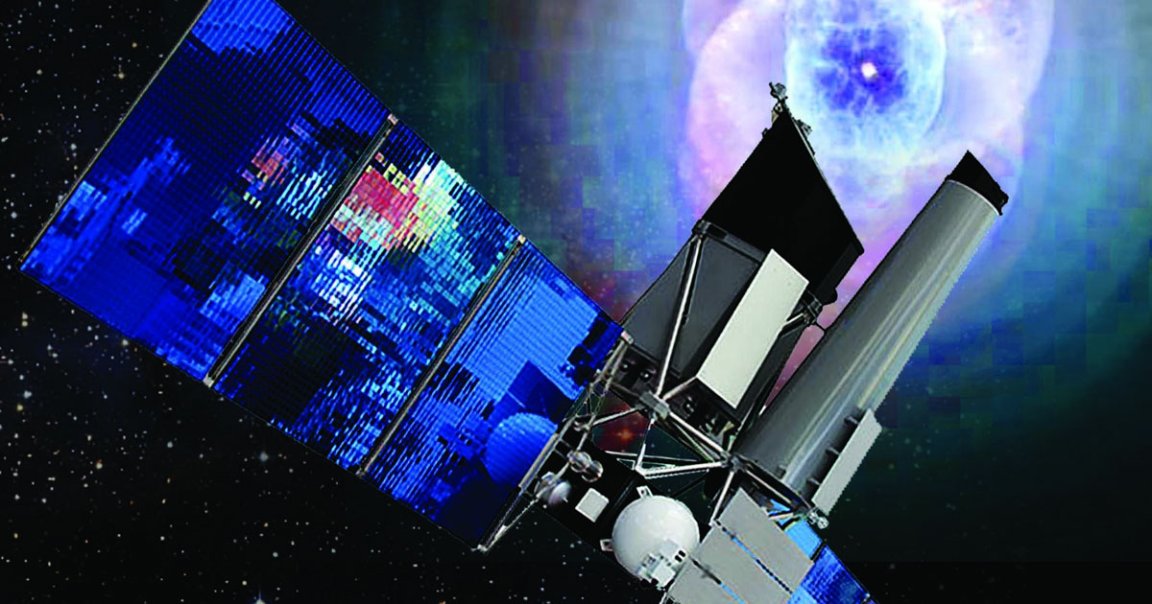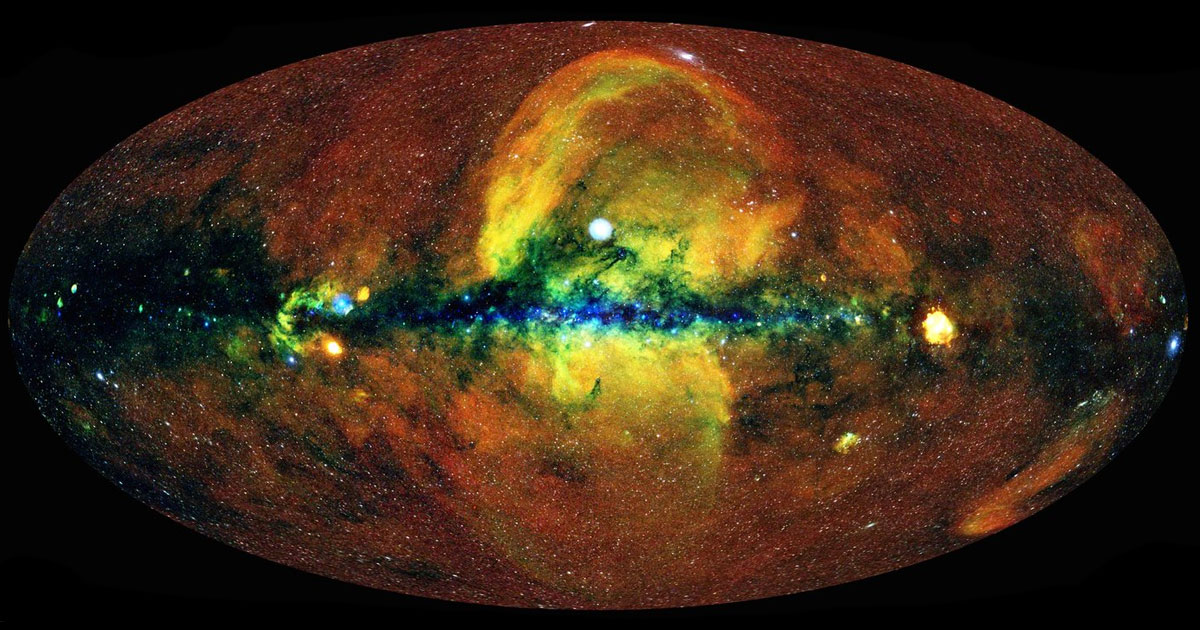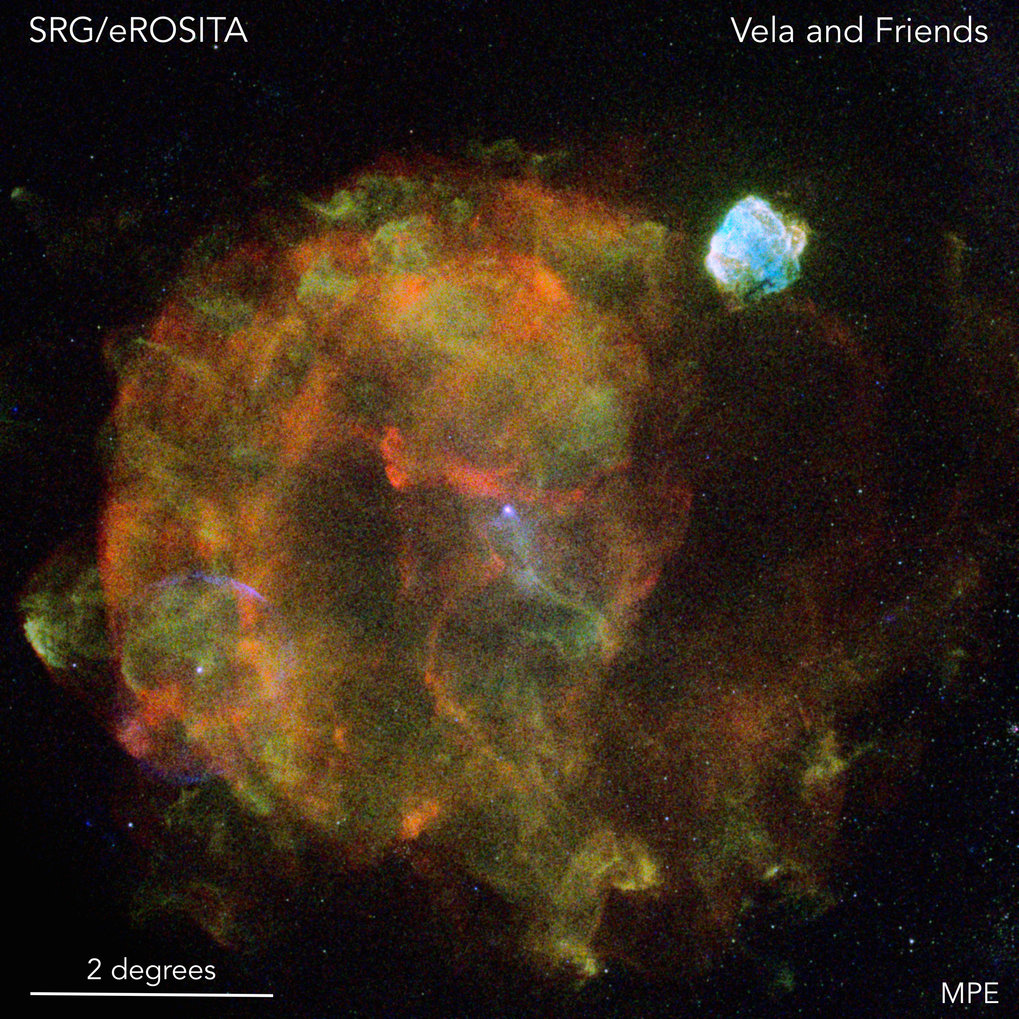
A telescope called eROSITA on board the Spektr-RG space observatory has captured breathtaking X-ray observations of the entire sky, Science Alert reports.
The X-ray instrument was built by the Max Planck Institute for Extraterrestrial Physics in Germany (MPE), and was launched along with the Russian-German space observatory Spektr-RG in July 2019.

The instrument’s observations, 165 gigabytes collected over 182 days, have been compiled into a stunning map of the sky that contains more than one million shining X-ray objects.
“This all-sky image completely changes the way we look at the energetic universe,” Peter Predehl, the Principal Investigator of eROSITA at MPE, said in a statement. “We see such a wealth of detail — the beauty of the images is really stunning.”

Most of the bright X-ray objects, around 77 percent, are active galactic nuclei, or supermassive black holes that are actively absorbing material at the center of galaxies. In between, there are clusters of galaxies that give off shining halos due to trapped gas caused by huge concentrations of dark matter.
“We were all eagerly awaiting the first all-sky map from eROSITA,” Mara Salvato, the scientist at MPE who was involved in the research, said in the statement.
“Large sky areas have already been covered at many other wavelengths, and now we have the X-ray data to match,” she added. “We need these other surveys to identify the X-ray sources and understand their nature.”
The team is already working hard on subsequent maps as well.
“Overall, during the next 3.5 years, we plan to get 7 maps similar to the one seen in this beautiful image,” Rashid Sunyaev, lead scientist of the Russian SRG team said in the statement. “Their combined sensitivity will be a factor of 5 better and will be used by astrophysicists and cosmologists for decades.”
“With a million sources in just six months, eROSITA has already revolutionized X-ray astronomy, but this is just a taste of what’s to come,” Kirpal Nandra, head of the high-energy astrophysics group at MPE, said. “This combination of sky area and depth is transformational.”
“Over the next few years, we’ll be able to probe even further, out to where the first giant cosmic structures and supermassive black holes were forming,” Nandra added.
READ MORE: This Is What The Entire Sky Looks Like Through X-Ray Eyes [Science Alert]
More on X-ray observatories: Astronomers Detect Biggest Explosion Since the Big Bang